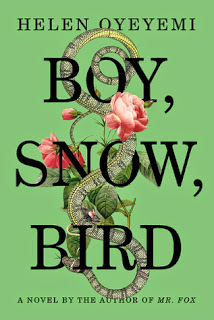The Undertaking by Audrey Magee
Publisher: Grove Press
Publication Date: September 2, 2014 (US release)
Length: 304 pages
Source: Grove Press via NetGalley
Audrey Magee’s novel The Undertaking, a finalist for the Bailey’s Women's Prize for Fiction, tells the story of two Germans during World War II, a man and a woman who marry for convenience and seek to survive the war in any way that they can. It’s a bleak and brutal book with a profoundly moving conclusion.
The Story: Peter and Katharina marry by proxy in 1941; they have never met and they select one another’s profiles through a marriage bureau. Peter, a private in the German Army, seeks the relief of honeymoon leave from the Eastern Front in Russia. Katharina, a young woman living with her parents in Berlin, marries in order to receive a pension in the event of her husband’s death. Peter’s father calls their marriage nothing more than a “Nazi breeding stunt.”
Peter arrives at Katharina’s apartment directly from the Eastern Front, filthy and covered with lice. Her parents are disappointed in Peter, a lowly schoolteacher before the war. Katharina’s father is a Nazi true believer and encourages Peter to assist the party in order to improve his prospects after the war. Soon Peter, like Katharina’s father, is helping remove Jewish families from their homes in the dead of night.
Unexpectedly, and after a few false starts, Katharina and Peter fall in love during their brief honeymoon. The novel follows the newlyweds’ parallel experiences, as Katharina curries favor with Nazi party bigwigs and Peter marches towards the inevitable horrors of the Battle of Stalingrad. Both Peter and Katharina will make painful, impossible choices as they seek to survive.
What I Thought: This is a powerful book. Once I had become involved with the story, I didn’t want to stop reading. The ending of The Undertaking is one of the most riveting and deeply affecting scenes in fiction I have read in a long time.
Magee brings a new perspective to World War II fiction by telling the stories of two ordinary Germans. Peter and Katharina never question Germany’s victory or the morality of the Nazi party’s actions. Magee has spoken about wanting to highlight the horror in the mundane. There is horror, indeed, in these characters' everyday actions, as Katharina wears the fine clothes of Jews sent to concentration camps and Peter and the other soldiers shoot Russian villagers for their food.
Magee, a journalist, brings into sharp focus the Eastern Front, Russian prisoner-of-war camps, and the barbaric treatment of German women by Russian soldiers at the end of the war. These are not easy or comfortable scenes to read, to be sure, but, as with the Holocaust, these terrible events need to be remembered.
One quibble -- I will say that, although I felt deeply enmeshed in the story, I struggled with the unadorned dialogue in The Undertaking. Magee’s prose throughout the novel is spare and economical, which works well for the most part. But the dialogue, for me, felt oddly stilted and unrealistic. I know that some critics have found this use of dialogue to be innovative, and perhaps it is . . . but I felt it had the effect of removing me from the story and the characters.
I would rate The Undertaking a 4 out of 5 stars, and recommend it to readers of historical fiction or literary fiction. Audrey Magee is certainly deserving of the praise and recognition received for her debut novel; I hope she will write more fiction in the future.
I received a free copy of this book from the publisher, Grove Press, through NetGalley. The opinions expressed here, as always, are my own.










































